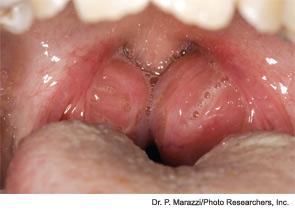All otolaryngologists and sleep specialists should obtain a BMI, or body mass index, on their pediatric patients. “It takes very little time but is very important,” said Dr. Pont. A child who falls in the 85th to 95th percentile for their age and gender is considered overweight, while a child who is beyond the 95th percentile is clinically obese. Those terms are not the best to use when talking with children or families, however. “Instead, we might say, ‘Your child has excess weight that could be impacting his health,’” Dr. Pont said. “Those kinds of tweaks in language help establish rapport and really open the door to a productive conversation, rather than putting people on the defensive.”
Explore This Issue
July 2012
Initiate Referrals
Referring an obese child and his family to a weight management program, if they are open to such a referral, may improve the child’s long-term health and the odds of successfully treating OSA. “The single most effective intervention you can take for sleep apnea is weight loss,” Dr. Kaplan said. “Of course, referring to a weight management program isn’t going to preclude the need for surgical intervention if the patient has tonsils and adenoids that are contributing to sleep apnea. But what they can do is start the patient on the road to the behavioral changes that are necessary for long-term weight management.”
Another important aspect of the assessment and treatment of obese children is the early involvement of other members of the health care team, including sleep medicine physicians, nutritionists, behavioral psychologists and even genetic specialists, said Dr. Kaplan. If he suspects sleep apnea in an obese pediatric patient, he’ll order a pediatric sleep study and initiate a referral to a nearby pediatric obesity program. Such multidisciplinary approaches to weight management are becoming increasingly common. Many academic medical centers and children’s hospitals now include pediatric obesity or weight management programs.
Pediatric weight management experts are very aware of the link between obesity and sleep apnea and often refer their patients to sleep specialists or otolaryngologists as well. “Because of the known relationship between sleep apnea and obesity, at least one nearby obesity center sends all of their obese patients for sleep studies as part of their routine workup,” said Lewis Kass, MD, director of pediatric sleep medicine at Norwalk Hospital in Norwalk, Conn.
Leave a Reply